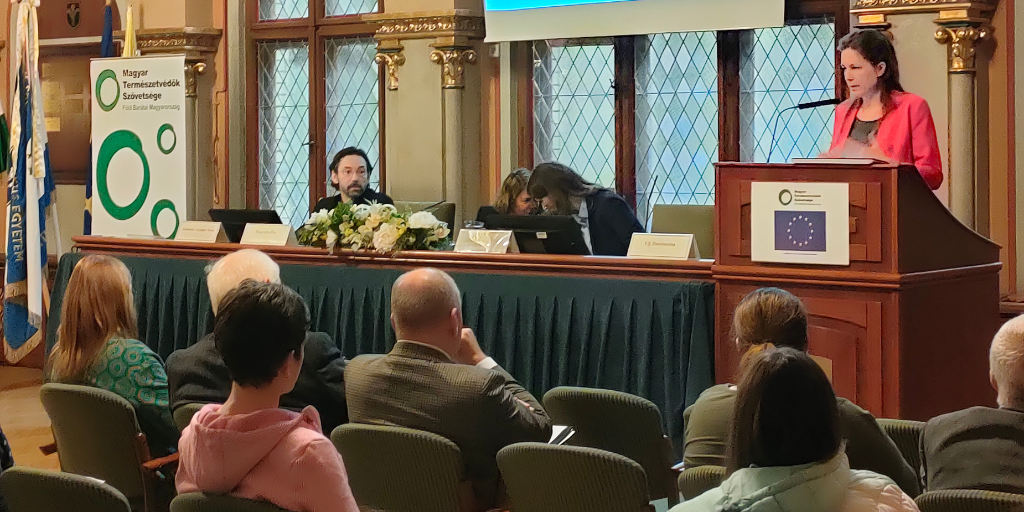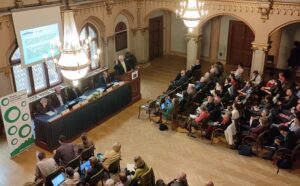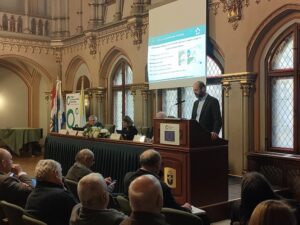
‘The European Green and Biodiversity Workshop and Conference’ was held in the hall of Pázmány Péter Catholic University in Budapest, Hungary on 14 April 2023.
The event was jointly organised by the Office of the Commissioner for Fundamental Rights’ Secretariat for Future Generations, the Department of Environmental Law and Competition Law of Pázmány Péter Catholic University, and the National Society of Conservationists (MTVSZ).
The European Green Deal has a decisive role in shaping domestic policies. In addition to the often-mentioned climate and energy goals, there is less talk about matters related to biological diversity. At the conference, we gave a summary of the overall goals of the European Green Deal in relation to biodiversity.
The event was hosted by the Ombudsman for Future Generations. Head of the Department of Biodiversity and Gene Conservation (Ministry of Agriculture) presented how the Green Deal is linked to different strategies and what actions and plans stem from this initiative. Representative of the Ombudsman’s office outlined their role in biodiversity conservation. Representative from the Ecological Institute for Sustainable Development Foundation gave an overview of the drivers of biodiversity loss and how our economy and social norms drive habitat destruction.
After the lunch break, the participants broke into two breakout groups to discuss two topics. Both groups had presentations from the officers of the Ministry of Agriculture, who explained the current situation and future plans for the Nature Restoration Law and the CAP Strategic Plan, respectively. Presenters from NGOs gave input on the conservation and social aspects of these policies.
Breakout group 1: The European draft law on nature restoration
During the 1.5-hour long discussion on several trade, the federations expressed their concerns and made recommendations to the decision makers on how to proceed with the negotiation of the law. Everybody agreed that implementing such legislation requires the cooperation of different sectors and plans were made to increase information flow and mutual support.
Breakout group 2: The impact of agricultural support systems on biodiversity
During the 2-hour long discussion, several stakeholders expressed their concerns and made recommendations to the decision makers on implementation and administrative issues. Discussion was so lively that it went far beyond the planned timeframe.
Overall, in both breakout groups we were able to create a constructive and forward-looking atmosphere where real arguments were discussed and assessed by a wide range of stakeholders. After the event several participants suggested to continue the discussions in the future and organise other events on the same topic.
There were 116 participants present at the event coming from diverse backgrounds: universities, civil society organisations, industry advocacy groups, national parks, journalists, political parties, and citizens.
 |
 |

